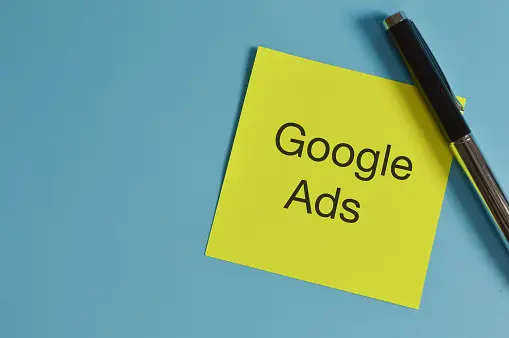If you’ve heard about PPC marketing and want to learn more, or if you want to use it for marketing your business but need help knowing where to start, you’re in the right place! PPC University, a series of guided courses, begins with this lesson.
What’s PPC?
Pay-per-click (PPC) digital advertising charges advertisers per click. You’re buying targeted website visits. PPC works well because the click is worth more than the fee. You’ve made much money if a $3 click leads to a $300 sale.
PPC ads can be text, images, videos, or a mix. They appear on search engines, websites, social media, and more.
Search engine advertising is a popular form of PPC. It lets advertisers bid for search engine-sponsored links when someone searches for their business. If we bid on “Google ads audit,” our free Google Ads Performance Grader appears on the SERP for that or a related search:
How does PPC work?
PPC advertising works differently on each platform, but generally:
Campaign type depends on the goal.
Adjust your targeting (audiences, devices, locations, schedule, etc.).
Budget and bidding strategy.
Enter your landing page URL.
Create ad.
After the ad goes live, your budget, bid, campaign settings, and ad quality and relevance determine where, when, and how much you pay per click.
All PPC platforms reward relevant, trustworthy pay-per-click campaigns with higher ad positioning and lower costs to keep users happy.
Thus, it would help if you mastered PPC to maximize profits.

How do Google Ads work?
Google Ads dominates PPC advertising worldwide. Google Ads lets businesses create search engines and other Google ads.
Google selects winners from its ad pool for each search.
The “winners” are determined by their keyword bids, ad campaigns, and keyword quality and relevance. Next section.
How Can I Do PPC With Google Ads?
Advertisers select keywords and bid on them when creating an ad. If you bid on “pet adoption,” Google will show your ad for searches related to pet adoption (more on keyword match types here).
Google selects ads for each search using formulas and an auction. If your ad enters the auction, it will have to give you a Quality Score from one to 10. The quality score is based on keyword relevance, expected click-through rate, and landing page quality.
This system lets winning advertisers reach potential customers within their budget. Like an auction. Google Ads auction infographic.
How to do pay-per-click advertising with Google Ads
Because Google is the most popular search engine, Google Ads gets the most impressions and clicks for your ads. Keywords and match types determine PPC ad frequency. The following can help your PPC advertising campaign succeed:
Keyword bids. PPC keyword lists, keyword groups, and ad copy.
Optimize landing pages. Optimize landing pages with compelling content and a clear call to action for specific search queries.
Quality Score up. Google rates keywords, landing pages, and PPC campaigns by Quality Score. Quality Scores increase ad clicks and lower costs.
Get noticed. Display and social ads need compelling ad copy and creativity.
Effective PPC keyword research
PPC keyword research is time-consuming but crucial. Successful Google Ads advertisers constantly update their PPC keyword list. You
Our keyword research guide is here, but a good PPC keyword list is:
Relevant: Don’t pay for clicks that won’t convert. That means you should bid on keywords related to your products.
Exhaustive: Include long-tail keywords in your keyword research. These are rarer but drive most search traffic. They are less competitive and cheaper.
PPC iterates. Your keyword list should grow and adapt as you refine and expand your campaigns.
Check out our Free Keyword Tool for high-volume, industry-specific PPC keywords.

PPC management
To keep your new campaigns effective, manage them regularly. Regular account activity predicts success. To optimize your campaigns, analyze your account’s performance and make these changes:
Continuously add PPC keywords: Add keywords relevant to your business to expand your PPC campaigns.
Negative keywords improve campaign relevancy and reduce waste.
Costly PPC keywords: If necessary, disable expensive, underperforming keywords.
Landing pages: To increase conversions, tailor content and CTAs to search queries. Send traffic to different pages.
Divide ads: Splitting ad groups into smaller, more relevant groups helps you create more targeted ad text and landing pages, improving CTR and Quality Score.
Starting PPC? Set up Google Ads now!
If you have Google Ads, use our Free Google Ads Performance Grader to identify areas for improvement. Your account’s click-through rate, Quality Score, and activity will be graded in 60 seconds or less.




